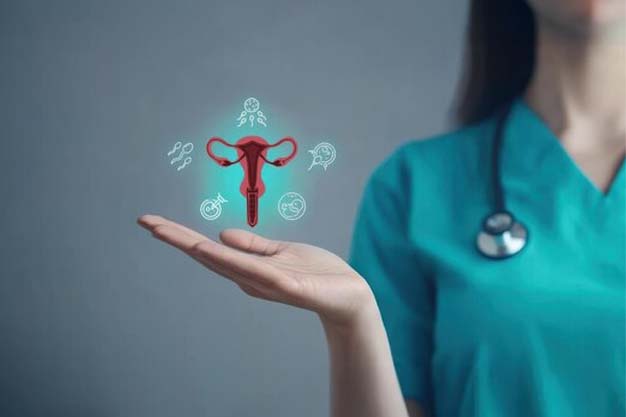PCOD and PCOS: A Guide to Understanding, Managing, and Thriving
February 2025
Listen to this Article
PCOD (Polycystic Ovary Disease) and PCOS (Polycystic Ovary Syndrome) can be overwhelming. While both involve ovarian cysts and hormonal imbalances, they differ in severity and impact. PCOD is generally considered a milder condition where ovarian cysts are present, but the symptoms are often less severe and more manageable. In contrast, PCOS is a more complex syndrome that involves irregular periods, infertility, and a higher risk of long-term health issues such as diabetes and heart disease, often requiring more comprehensive management.
Polycystic Ovarian Disease (PCOD) and Polycystic Ovary Syndrome (PCOS) is a hormonal disorder that disrupts the natural fertility cycle in women. It occurs when an ovary overproduces immature eggs, which accumulate and cause a hormonal imbalance. If conception becomes challenging, individuals can visit the renowned Bedekar Maternity Hospital in Thane for comprehensive treatment and effective solutions to address the issue.
Common Signs and Symptoms of PCOD and PCOS
- Irregular periods
- Excess hair growth (hirsutism) on the face, chest, and back
- Acne and oily skin
- Weight gain or difficulty losing weight
- Thinning hair on the scalp
- Multiple cysts on the ovaries (visible via ultrasound)
- Pelvic pain or discomfort
- Infertility (more common in PCOS)
How Diet Affects PCOD/PCOS
One of the key factors in managing PCOD/PCOS is addressing insulin
resistance, which is common in both conditions. Insulin is a hormone that helps
convert sugar into energy, and when the body is resistant to it, it disrupts
hormone balance and makes weight management more challenging. A
well-balanced diet can help regulate blood sugar, reduce insulin resistance, and
support overall hormone balance. By focusing on whole grains, lean proteins, healthy fats, and anti-inflammatory foods, individuals with PCOD and PCOS can
reduce symptoms such as acne, excessive hair growth, and inflammation while
supporting long-term health.
Recommended Foods for Your PCOD/PCOS Diet
- Fruits: Berries, apples, citrus fruits
- Vegetables: Leafy greens, broccoli, sweet potatoes
- Whole grains: Brown rice, quinoa, oats
- Lean proteins: Fish, poultry, beans, lentils
- Healthy fats: Avocado, nuts, seeds, olive oil
Foods to Limit or Avoid with PCOD/PCOS
- Refined sugars and sugary foods (candies, sugary drinks)
- Processed foods (fast food, packaged snacks)
- Fried foods and trans fats
- Dairy (for some, may worsen acne and inflammation)
- High glycemic index foods (potatoes, sugary cereals)
- Alcohol (can disrupt hormonal balance)
Additional Lifestyle Changes to Consider
Incorporating physical activity and stress management techniques are crucial for
improving PCOD/PCOS symptoms. Aim for at least 30 minutes of
moderate-intensity exercise most days of the week, such as brisk walking,
swimming, cycling, or dancing. Stress reduction practices like yoga, meditation,
or deep breathing can also help regulate hormones and boost overall well-being.
Can you have a Healthy Pregnancy with PCOD/ PCOS?
Currently, there is no definitive evidence that any specific treatment can prevent
the development of PCOS, as the risk is largely influenced by genetic factors.
However, preventing weight gain, particularly during adolescence and early
adulthood, may help reduce the likelihood of developing PCOS symptoms.
Despite this, there are various medical treatment options available, and one such
option is seeking care at Bedekar Hospital, the best maternity hospital in Thane.
What are some misconceptions about PCOD/PCOS
A common misconception about PCOD/PCOS is that it is caused by or linked to
ovarian cysts. While the term 'cystic' is in the name, cysts are neither the cause
nor a primary symptom of PCOD/PCOS. Another misconception is that women
with PCOS cannot conceive. In reality, many women with PCOD/PCOS can
become pregnant naturally, without medical intervention. For those facing fertility
challenges, successful conception is often achievable with appropriate treatment.
How to maintain mental health while managing PCOD/PCOS
Managing PCOS can be emotionally challenging, but it’s essential to prioritize
mental well-being. To keep your mental health intact, consider incorporating
stress-reducing practices such as regular exercise, mindfulness, and meditation.
Building a strong support network, seeking professional counseling if needed,
and maintaining a balanced lifestyle can also help you cope with the emotional
and psychological effects of PCOS. Additionally, you may approach the
experienced gynecologists at Bedekar Hospital, the best maternity hospital, for
expert support and guidance in managing your condition.
The Key Fact
Managing PCOS and PCOD can be difficult, but with a PCOS-friendly diet and
lifestyle adjustments, you can alleviate symptoms and improve your mood. If your
symptoms persist, it’s important to consult with a doctor to identify underlying
causes and explore appropriate treatment options at the prominent Maternity
hospital in thane
“Bedekar Hospital”
Also read : Valuable Tips for Successful Breastfeeding
About Dr Bedekar Hospital For Women And Children in Thane:
Dr Bedekar Hospital Thane - Cervical Cancer in Women Treatment clinic in Thane Do Get in Touch to Book Appointment With Our Experienced Team of Doctors.
Talk to Us On 022 2542 1438 / 9820913256 Or Email Us At bedekarhospital@gmail.com
Happy to Help!



